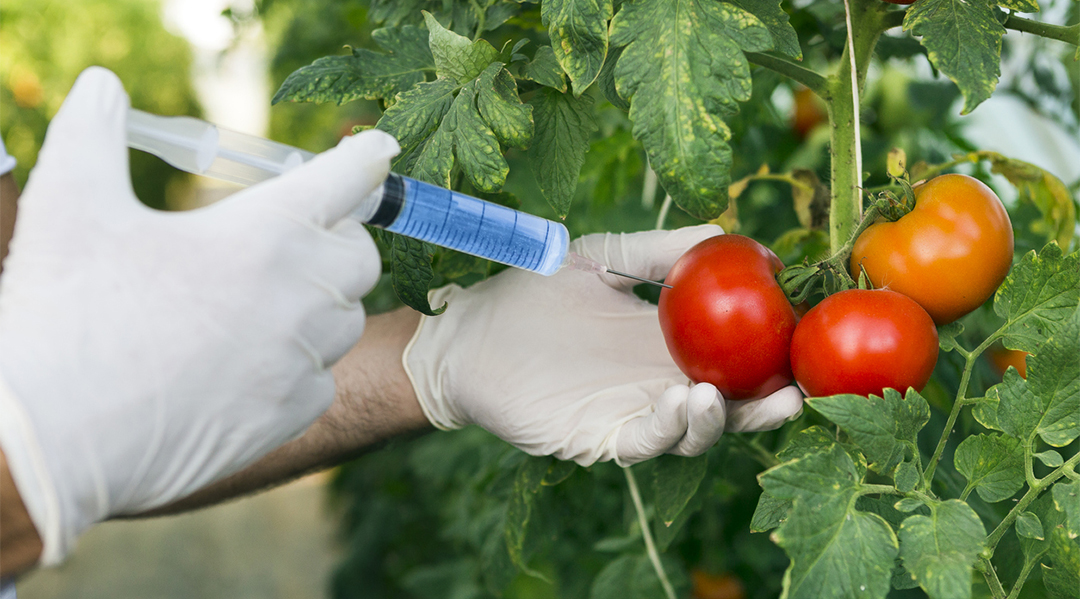GMO Trait-Specific PCR Testing
Genetically Modified Organism (GMO) testing is crucial in the agricultural and forestry sectors to ensure compliance with regulations, maintain product integrity, and meet consumer expectations. Among the various methods used for GMO testing, GMO Trait-Specific Polymerase Chain Reaction (PCR) Testing stands out due to its high sensitivity and specificity, making it a preferred choice for detecting specific genetic modifications in crops or plants.
The process of GMO Trait-Specific PCR Testing involves several key steps. Initially, the target plant tissue is harvested and prepared by extracting DNA from the cells. This extraction ensures that the genetic material used in the analysis is pure and free from contaminants. Subsequently, a series of enzymatic reactions are carried out to amplify specific regions of the DNA sequence associated with known GMO traits.
The amplified DNA fragments are then subjected to electrophoretic separation techniques like agarose gel or polyacrylamide gel electrophoresis (PAGE) for visualization and identification. The PCR products can be further analyzed by sequencing if precise identification is required, or they can be compared against a standard reference band pattern using the RFLP (Restriction Fragment Length Polymorphism) method.
This approach allows laboratories to detect even minor modifications within crops or plants, ensuring that the final product meets regulatory standards and market requirements. For instance, in the case of soybean testing, specific PCR primers are designed based on known insertion sites such as the bar gene or nptII gene, which encode for antibiotic resistance markers.
Moreover, this method is instrumental in supporting research and development efforts aimed at creating more sustainable agricultural practices. It enables scientists to study the long-term effects of genetic modifications by tracking changes over time, thereby providing valuable insights into ecological impacts and economic benefits.
The accuracy and reliability of GMO Trait-Specific PCR Testing have been validated through numerous international standards including ISO 21579:2013 and AOAC Official Method 985.29. These standards ensure that the testing procedures are consistent across different laboratories, promoting trustworthiness in results.
In summary, GMO Trait-Specific PCR Testing serves as an indispensable tool for maintaining agricultural integrity and compliance with global regulations. Its ability to detect precise genetic modifications makes it particularly valuable for quality managers, compliance officers, R&D engineers, and procurement specialists who need dependable data to make informed decisions about their products and processes.
Benefits
The implementation of GMO Trait-Specific PCR Testing offers numerous advantages that contribute significantly to the agricultural sector:
- Regulatory Compliance: Ensures adherence to international regulations governing genetically modified organisms, thereby avoiding potential legal issues and penalties.
- Market Access: Facilitates easier entry into markets where stringent labeling laws apply, enhancing business opportunities for producers.
- Consumer Trust: Builds confidence among consumers regarding the safety and quality of products they purchase, fostering a positive brand image.
- R&D Support: Provides critical data for ongoing research projects focused on developing new varieties of crops with improved traits like pest resistance or enhanced nutritional content.
- Economic Efficiency: Helps minimize risks associated with non-compliance by identifying and rectifying issues early in the production cycle, saving costs in the long run.
By leveraging these benefits, stakeholders in the agricultural industry can achieve higher standards of quality control while maintaining competitive edge in both domestic and international markets.
Customer Impact and Satisfaction
GMO Trait-Specific PCR Testing plays a pivotal role in enhancing customer satisfaction across various stages of product development and distribution. For quality managers, the ability to accurately identify genetic modifications ensures that only compliant products reach market shelves, thereby protecting brand reputation.
Compliance officers find this testing method particularly beneficial as it provides robust evidence supporting adherence to regulatory requirements, reducing the likelihood of audits or recalls. In R&D environments, researchers can rely on precise results from GMO Trait-Specific PCR Testing when evaluating new genetic modifications, streamlining the process towards successful commercialization.
For procurement teams, reliable test outcomes help them source high-quality raw materials that meet both legal and ethical standards, ensuring consistency throughout supply chains. Overall, these benefits translate into greater customer satisfaction by delivering products that are safe, compliant, and of superior quality.
Competitive Advantage and Market Impact
GMO Trait-Specific PCR Testing offers significant competitive advantages in the agricultural sector, particularly for companies operating at an international level. By being able to demonstrate strict adherence to global regulations regarding genetically modified organisms, firms can differentiate themselves from competitors who may not possess similar capabilities.
This capability also opens up new avenues for market expansion into regions with increasingly stringent requirements on labeling and sourcing of non-GMO products. Companies that invest in advanced testing technologies like GMO Trait-Specific PCR Testing can position themselves as leaders within their respective markets, attracting clients seeking assurance about the integrity of their supply chains.
The use of such testing methods also supports sustainable agricultural practices by enabling continuous monitoring of genetically modified crops over time. This ongoing evaluation helps stakeholders identify any unintended consequences early on, allowing for proactive adjustments and improvements. Thus, not only does it enhance competitiveness but also promotes responsible stewardship of natural resources.





